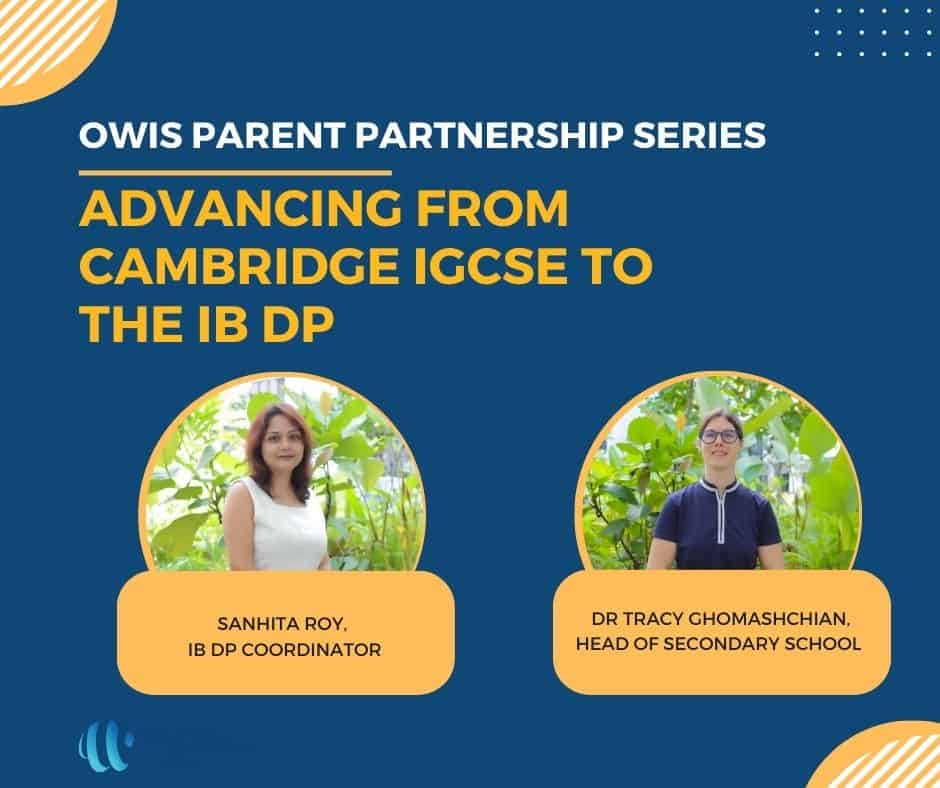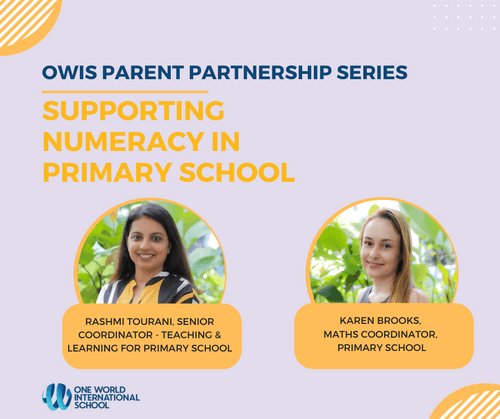In our recent Parent Partnership Series, Ms Sanhita Roy, the IB DP Coordinator, and Dr Tracy Ghomashchian, Head of Secondary School, organised a session for parents whose children are making the transition from the Cambridge IGCSE Programme in Grade 10 to the IB Diploma Programme in Grade 11.
During the session, they provided insights on how to select subjects in the IB DP at OWIS, which subjects we offer and how those subjects are studied.
Here are some of the highlights from the presentation.
International Baccalaureate Diploma Programme (IB DP): An Introduction
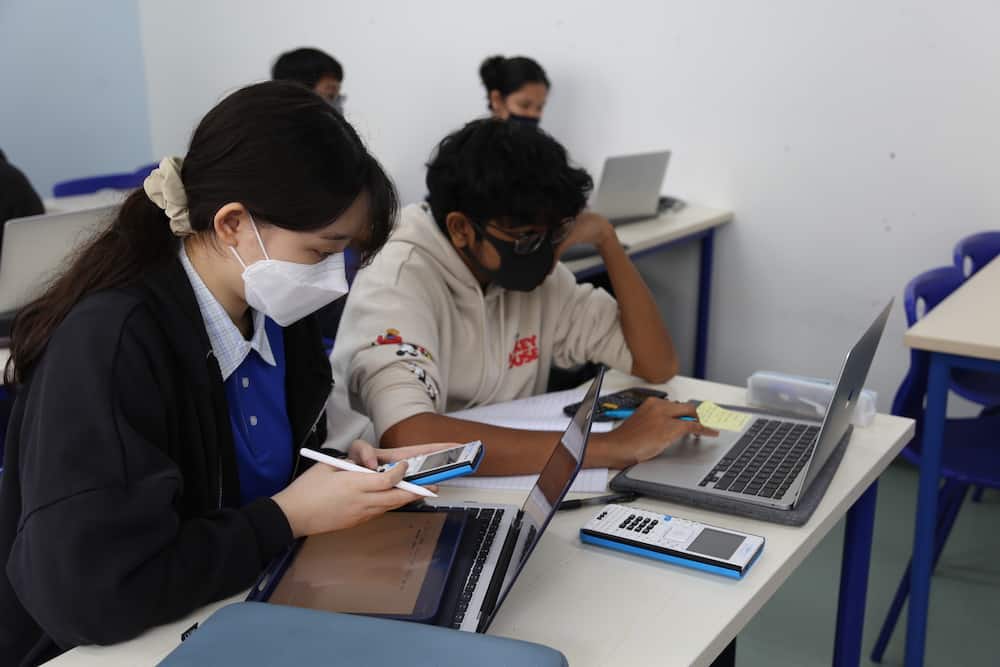
We’re all familiar with the IB DP, which is well-known for its rigorous academic curriculum.
The IB DP is a comprehensive, two-year programme that focuses on developing students’ academic and personal skills. It is designed for students aged between 16 and 19 and aims to prepare students for university education and life beyond school. It is recognised by many universities around the world and is considered one of the most challenging pre-university programmes.
However, the IB DP is more than just a set of academic standards. It is a philosophy that encourages students to become lifelong learners who are equipped with the skills and knowledge necessary to make a positive impact on the world around them.
The IB DP is academically challenging but also prepares students for the demands of university-level work. Time management is a crucial skill that students learn in the IBDP as they are provided with a two-year timeline at the beginning of the programme. Sticking to the timeline is essential as each subject has internal components that need to be submitted by a predetermined schedule. Missing the deadline can make it difficult for students to catch up and complete the programme by the end of Grade 12. While the IB runs the exams in two sessions – one in May and one in November – we prepare students for the May exam.
Choosing IB Subjects: Maximising Student Potential
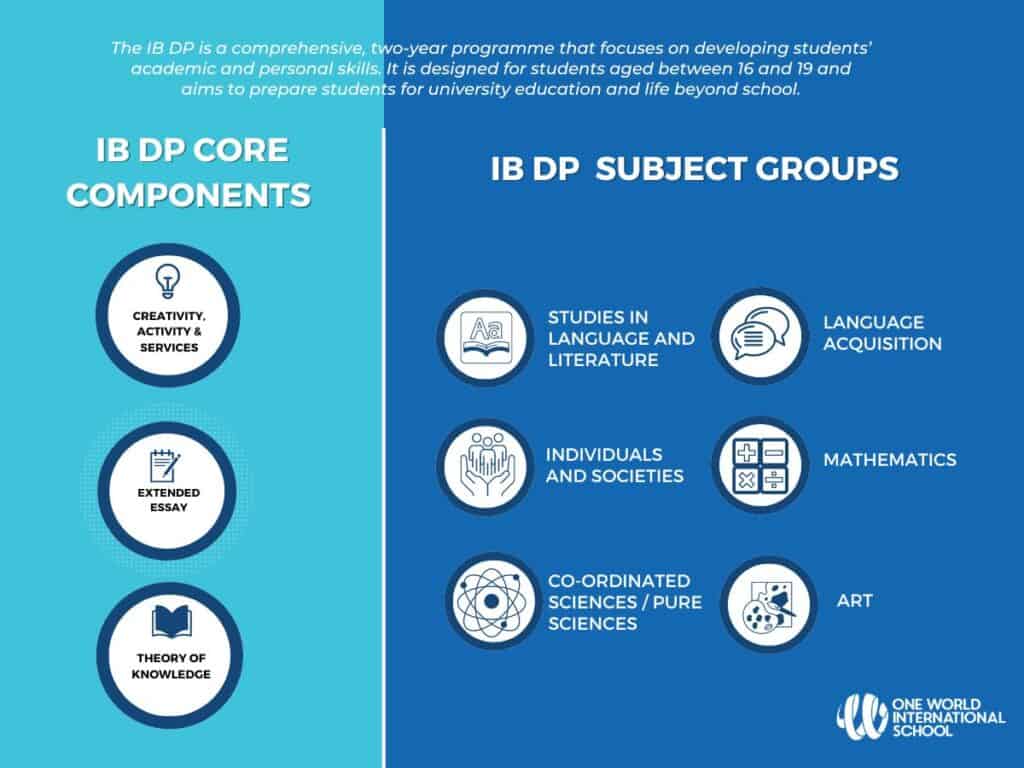
As students transition to the higher grades, they are faced with the exciting task of choosing their subjects.
They have to take six subjects from six subject groups (though Group 6 on the Arts is optional and students can instead pick a sixth subject from Groups 3 or 4); three of these subjects must be at a higher level, and the other three must be at a standard level. But how do students know which subjects to choose?
At OWIS, we encourage students to keep their future goals in mind when selecting their subjects. Even if they are not exactly sure what they want to do, having a general idea of their intended field of study can help guide their choices.
Before they choose their subjects, we hold one-on-one sessions with students to guide and educate them on the different options and how to choose the subjects that align with their goals.
In addition, students will also have the opportunity to explore their chosen subjects with the subject teachers. This is an excellent chance for students to understand how each subject is taught and what to expect from the course.
Once the students have made their subject choices, we sit them down with the DP Coordinator and the University Counsellor to discuss and finalise the subjects. This ensures that the subjects selected are relevant to their future career aspirations and will open up a path towards university.
The Core Components of the IB DP
The core of the IB DP consists of three essential components: Theory of Knowledge, Extended Essay and Creativity, Activity, and Service (CAS).
Let’s dive into the details of each.
Creativity, Activity and Services (CAS)
CAS is an integral part of the IB DP and aims to develop a student’s creativity, physical abilities and social responsibility. Unlike other parts of the programme, CAS is not graded; it is internally assessed, and students must complete it within 18 months. CAS has three strands: Creativity, Activity and Service.
The Creativity strand (C) provides students with opportunities to explore their artistic and creative sides. They can take on any activity they want as long as it involves creativity. They can start a blog, learn photography, paint murals, etc.
The Activity strand (A) focuses on developing students’ physical abilities and encouraging them to participate in sports or any other physical activities they enjoy, such as swimming, running, or dancing.
The Service strand (S) is about developing students’ social responsibility and encouraging them to serve their communities. Students can participate in various activities such as volunteering or fundraising, and OWIS gives them many opportunities to give back to the community. For instance, OWIS organised a Pink Day in school to spread awareness about Breast Cancer and raise funds for the Singapore Cancer Society. The event was a massive success, with the school community coming together to support the cause. The students also recently organised a beach clean-up at East Coast Park.
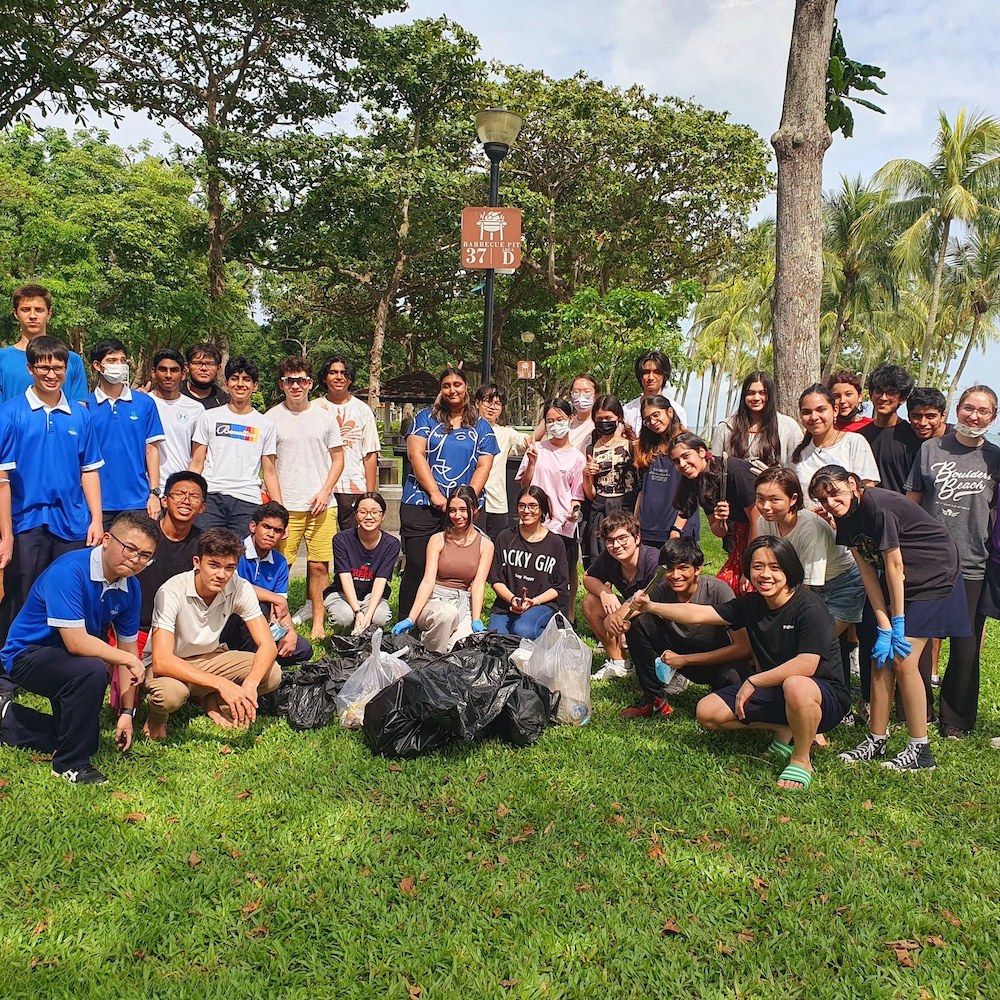
Extended Essay
The Extended Essay is an important component of the IBDP. It is a 4,000-word essay that students have to research and write over a period of two years. The subject of the essay depends on the student’s interest and the subject they choose to study.
One of the key features of the Extended Essay is that it is externally marked. This means that the essay is sent to an external examiner who marks it according to a set of criteria established by the IB. The final grade the student receives is based on the marks given by the external examiner.
Each student is assigned a dedicated supervisor who helps them through the process of writing the Extended Essay. The supervisor helps the student frame the research question, discusses ideas and provides guidance on how to write the essay. The supervisor is also responsible for ensuring that the student meets the deadline for submitting the essay.
The supervisor and student work together over a period of two years. During this time, the student is required to submit reflections on each stage of the process. This includes reflecting on why they chose the research question, their thoughts on the subject and how they plan to put those thoughts into writing.
The Extended Essay is an opportunity for students to delve into a subject of their choice and develop skills in research, critical thinking and academic writing. It also provides an opportunity for students to work independently and take ownership of their learning.
Theory of Knowledge
Theory of Knowledge is unique in that it is designed to help students question and reflect on the knowledge they acquire through other IB subjects.
Under this strand, students are required to do an exhibition, which is internally marked and externally moderated. They are also required to write an essay, which is marked externally. One of the unique aspects of this strand is that it can connect to any subject the student is studying in the IB programme.
Theory of Knowledge is a new concept for most students, and it can be challenging. The focus of Theory of Knowledge is on questioning the ‘how, why and what’ of a topic that students are interested in. This helps them develop critical thinking skills and a deeper understanding of the world around them.
The teachers guide students through the exhibition and essay writing process, helping them to understand the expectations and requirements of the subject.
Theory of Knowledge requires dedicated lessons within the IB DP timetable, and the dedicated Theory of Knowledge teachers play a crucial role in helping students develop the skills they need to succeed in the subject. They are responsible for taking students through the curriculum and helping them develop the skills they’ll need: critical thinking, reflection and essay writing.
Understanding the IB DP Assessment: Internal and External Scoring System
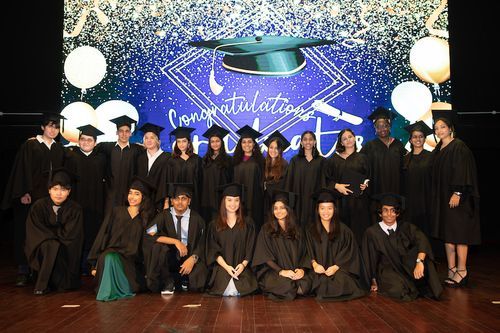
As students enter the IB DP, they are introduced to a unique form of assessment that combines both internal and external evaluations. From the six subjects that the student chooses, they can earn a maximum of seven points for each subject. This means that the total possible points from these six subjects are 42.
In addition to the six subjects, they will also earn a maximum of three points from the Theory of Knowledge and the Extended Essay. Therefore, the maximum points a student can earn in the IB Diploma Programme is 45.
As our exploration of the IB DP comes to a close, it’s clear that this unique curriculum aligns perfectly with our school’s commitment to providing a well-rounded education.
We hope this information has been helpful in understanding the structure and requirements of the IBDP and how it can benefit our student’s education and future at OWIS.
For more information, please contact our Admissions Counsellor.
